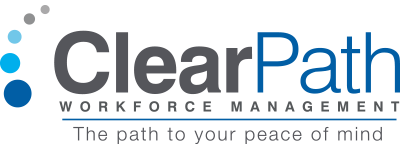I’ve been noticing lately that some individuals and companies are loosening up on how they engage Independent Contractors (ICs). There are those that think the conservative risk-averse organizations are not being progressive enough when it comes to engaging freelancers in the gig economy. They feel comfortable with providing training for ICs and integrating workers into their organization. Some companies think we are exaggerating the risks associated with worker misclassification and ask, “How do the big guys get away with it?” Some are even asking if there is still a need for standard IC and W-2 analysis.
I understand that companies are trying to be creative in their talent acquisition strategy in order to stay competitive. Unemployment is at a record low and more and more workers are going out on their own as freelancers. It makes sense that companies that self-source talent are attracted to the sparkly worker, called a “freelancer”. Be cautioned – all that glitters is not gold. Just because a worker prefers to work as a freelancer, it doesn’t mean that you are exempt from the risk of employee misclassification.
The use of independent contractors has increased exponentially over the last decade, with a bustling gig economy expected to compose 40 percent of the American workforce within the next four years. Because of this, awareness of independent worker rights is growing, too, as are the inevitable liabilities resulting from employee misclassification.1
The differences between an employee and an independent contractor largely involve financial and behavioral controls. An independent contractor will incur unreimbursed business expenses throughout the course of his or her work. He or she will likely have invested significant funds for the equipment used, is able to make his or her services available to others, and is typically paid a flat fee. Employees do none of these things. Regardless, many businesses misclassify employees as independent contractors for monetary reasons, as initially it seems cheaper to pay a worker as an independent contractor versus an employee. By not paying a worker as an employee, the business avoids paying for employer taxes, overtime, benefits, state unemployment taxes, and workers’ compensation. This classification opens the business up to a world of added expenses and employee misclassification penalties, costing about double what it would cost to pay the employee correctly. Occasionally, however, misclassification is a result of a simple error or misunderstanding.
In an environment where the federal and state governments are looking to cover budget shortfalls, the IRS and many states are looking for misclassified workers. In fact, the Internal Revenue Services and the Department of Labor have agreed to share information between the two agencies. Currently, 35 states have signed Memorandum of Understandings with federal agencies to share information on misclassified workers.
If you are audited in your state by one agency and found to be in violation, the information could be shared with as many as five other agencies – federal and state – that will come after you for taxes, penalties, and underpaid wages/benefits. Recently, 13 states – including Connecticut, Illinois, Massachusetts, Maryland, Minnesota, New Jersey, New Mexico, New York, Oregon, Pennsylvania, Virginia and Washington – decided to create a task force that will end unfair labor practices and tighten the grip on worker misclassification.2 A short time ago, Wisconsin Governor, Tony Evers signed an executive order launching a joint enforcement task force on payroll fraud and worker misclassification.3
If your organization needs some help ensuring that you are ready for the crackdown on IC Compliance, ClearPath Workforce Management risk mitigation services bridge the gaps to enable compliant engagement of this highly skilled talent and to expand your talent supply chain. ClearIC™ can automate and simplify the Independent Contractor evaluation process while mitigating your risk via our full-service IC vetting process. Contact ClearPath for a complimentary 1:1 review of your current worker status.
Sources:
1http://www.maslowmedia.com/blog/3-employee-misclassification-penalties-you-dont-want-to-mess-with
- Written by: Connie Wendt
- Posted on: May 8, 2019
- Tags: 1099, Freelancers, GIG-ECONOMY, IC, IC Compliance, INDEPENDENT CONTRACTOR COMPLIANCE, Independent Contractors, IRS, Procurement of Independent Contractors, TALENT ACQUISITION, W-2, WORKER MISCLASSIFICATION, Workforce Management

